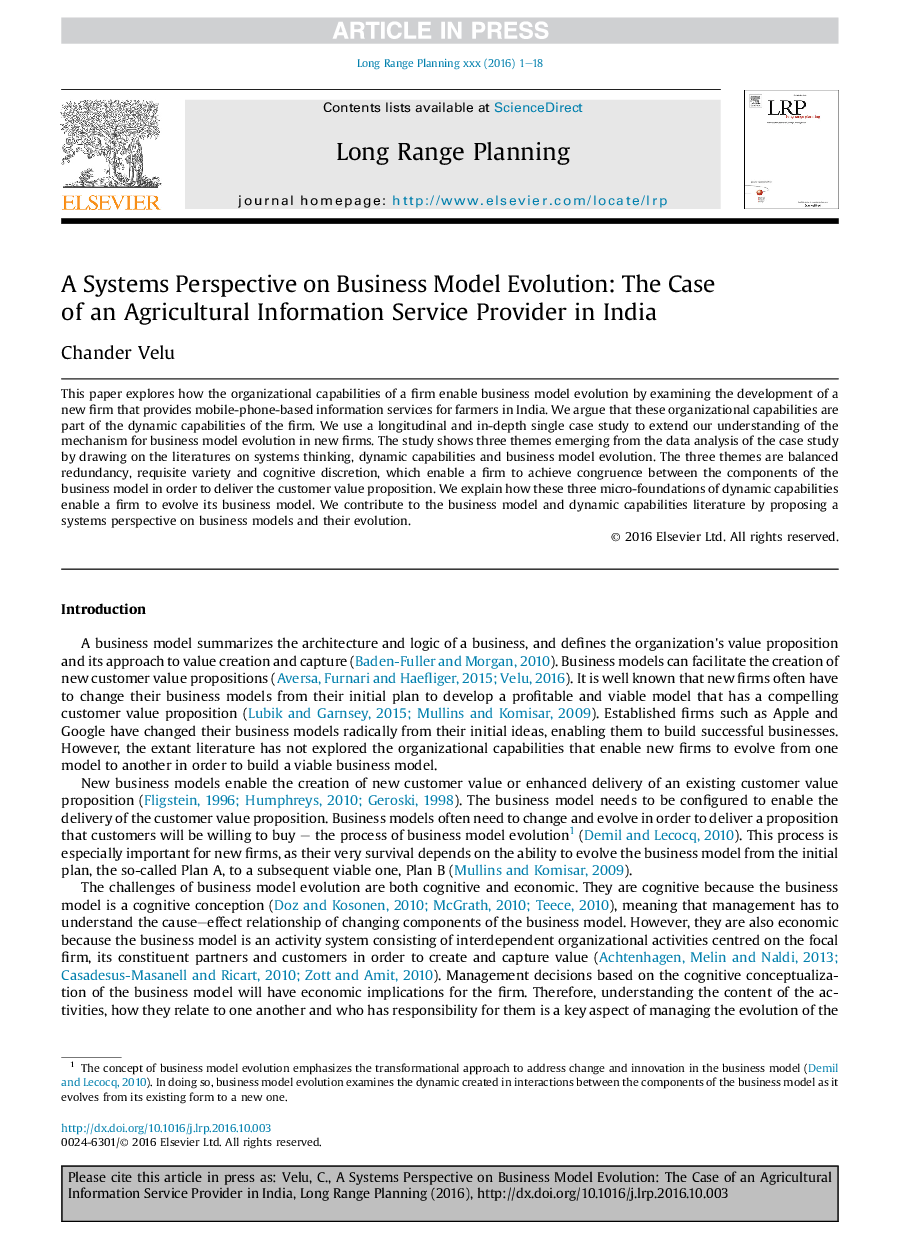ترجمه فارسی عنوان مقاله
چشم انداز سیستم در تکامل مدل کسب و کار: مورد یک ارائه دهنده خدمات اطلاعات کشاورزی در هند
عنوان انگلیسی
A Systems Perspective on Business Model Evolution: The Case of an Agricultural Information Service Provider in India
| کد مقاله | سال انتشار | تعداد صفحات مقاله انگلیسی |
|---|---|---|
| 109693 | 2017 | 18 صفحه PDF |
منبع

Publisher : Elsevier - Science Direct (الزویر - ساینس دایرکت)
Journal : Long Range Planning, Volume 50, Issue 5, October 2017, Pages 603-620
ترجمه چکیده
این مقاله به بررسی اینکه چگونه قابلیت های سازمانی یک شرکت، تکامل مدل کسب و کار را قادر می سازد با بررسی یک شرکت جدید که خدمات اطلاعاتی مبتنی بر تلفن همراه را برای کشاورزان در هند فراهم می کند. ما استدلال می کنیم که این قابلیت های سازمانی بخشی از قابلیت های پویای شرکت است. ما از مطالعات تک مطالعات طولی و عمیق استفاده می کنیم تا درک ما از مکانیسم تکامل مدل کسب و کار در شرکت های جدید گسترش یابد. این مطالعه نشان دهنده سه موضوع است که از تجزیه و تحلیل داده ها در مورد مطالعه موردی با استفاده از ادبیات در مورد تفکر سیستم، قابلیت های پویا و تکامل مدل کسب و کار است. این سه تم فوقالعاده متعادل، تنوع لازم و اختیار شناختی هستند، که شرکت را قادر می سازد تا بین اجزای مدل کسب و کار برای هماهنگی بین گزاره های ارزش مشتری ارائه شود. ما توضیح می دهیم که چگونه این سه پایه مفهومی از قابلیت های پویا، یک شرکت را قادر می سازد تا مدل کسب و کار خود را تکامل دهد. ما با ارائه یک دیدگاه سیستم در مدل های تجاری و تکامل آنها به مدل کسب و کار و ادبیات قابلیت های پویا کمک می کنیم.

